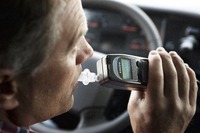Sweden exports road safety
 The Danish government is taking steps to improve road safety through increased collaboration with Sweden. On 6th November, the Swedish Trade Council will hold a seminar at the Swedish Embassy in Copenhagen, where Volvo Trucks and Swedish government officials will share their experience in road safety.
The Danish government is taking steps to improve road safety through increased collaboration with Sweden. On 6th November, the Swedish Trade Council will hold a seminar at the Swedish Embassy in Copenhagen, where Volvo Trucks and Swedish government officials will share their experience in road safety. Swedish is one of the countries in the world that has been most successful in reducing its rate of serious and fatal traffic accidents. In light of this, the Danish Ministry of Transport has taken an initiative to exchange experience with Swedish players including Volvo Trucks.
No tolerance approach
“One reason for Sweden's success in traffic safety is broad adhesion to the Swedish government's ‘no tolerance’ approach. There is a general view that nobody should be subjected to the risk of serious traffic-related accidents or injuries," explains Volvo Trucks’ safety director Lars-Göran Löwenadler. “Volvo Trucks is eager to share its knowledge in this area. With 40 years’ experience of researching traffic accidents, we have extensive expertise on truck accidents and their causes.”
Preventing accidents
Automotive manufacturers have traditionally concentrated on reducing risk of injury to vehicle drivers and their passengers. But in recent years, safety improvement efforts have increasingly focused on accident prevention.
“Today, our trucks offer outstanding collision protection for drivers and passengers. Now the big challenge is to prevent accidents from happening at all,” comments Löwenadler.
Tiredness, poor concentration and alcohol
The human factor plays a key role in nine out of ten accidents. Consequently, Volvo Trucks is focusing on creating solutions to help drivers avoid critical situations, for instance by reducing the risk of accidents caused by tiredness, poor concentration and alcohol.
Strong interest in Denmark
“In Denmark, there is strong focus on accidents where cyclists or pedestrians have been run over by trucks taking right turns,” says Peter Andersen, Volvo Trucks’ head of marketing and PR in Denmark. But other types of accidents involving trucks are also under discussion. As a result, there is a keen interest in safety systems that can help drivers improve their driving safety.”
Systems that help drivers
One such system is Lane Changing Support (LCS), recently introduced in Volvo trucks. LCS uses radar to detect obstacles that cannot be seen in the truck’s passenger rear view mirror. When the driver switches on the right indicator and prepares to change lanes, the system checks whether there is an obstacle in the blind spot. If there is, a light signal alerts the driver.
Another new system that protects against tiredness-related accidents is Driver Alert Support (DAS). If the driver’s concentration drops, the vehicle’s movement pattern changes. DAS registers this and alerts the driver to take a break.
In addition, a corner lighting system is now being introduced for inner city driving, which improves the driver's vision when turning corners in dark or dim conditions.
Alcolock
Drunk driving is extremely rare among professional truck drivers. However, if it does occur, both the driver and other road users are subjected to unnecessary risk. Volvo Trucks has been offering an optional alcolock system for its trucks in Sweden for several years. The system was successfully tested in France this year and now most of Europe has the option of having Volvo alcolocks factory-fitted.
“It's highly positive that the Danish government is taking this initiative to improve traffic safety,” says Lars-Göran Löwenadler. “Perhaps Denmark will also adopt a ‘no tolerance’ vision. If so, we’d be delighted to help make this vision reality."

